Floor plan of the venue
Click on the picture to view it in full screen, use the left and right arrows or click on the thumbnail to switch floor plans of different floors
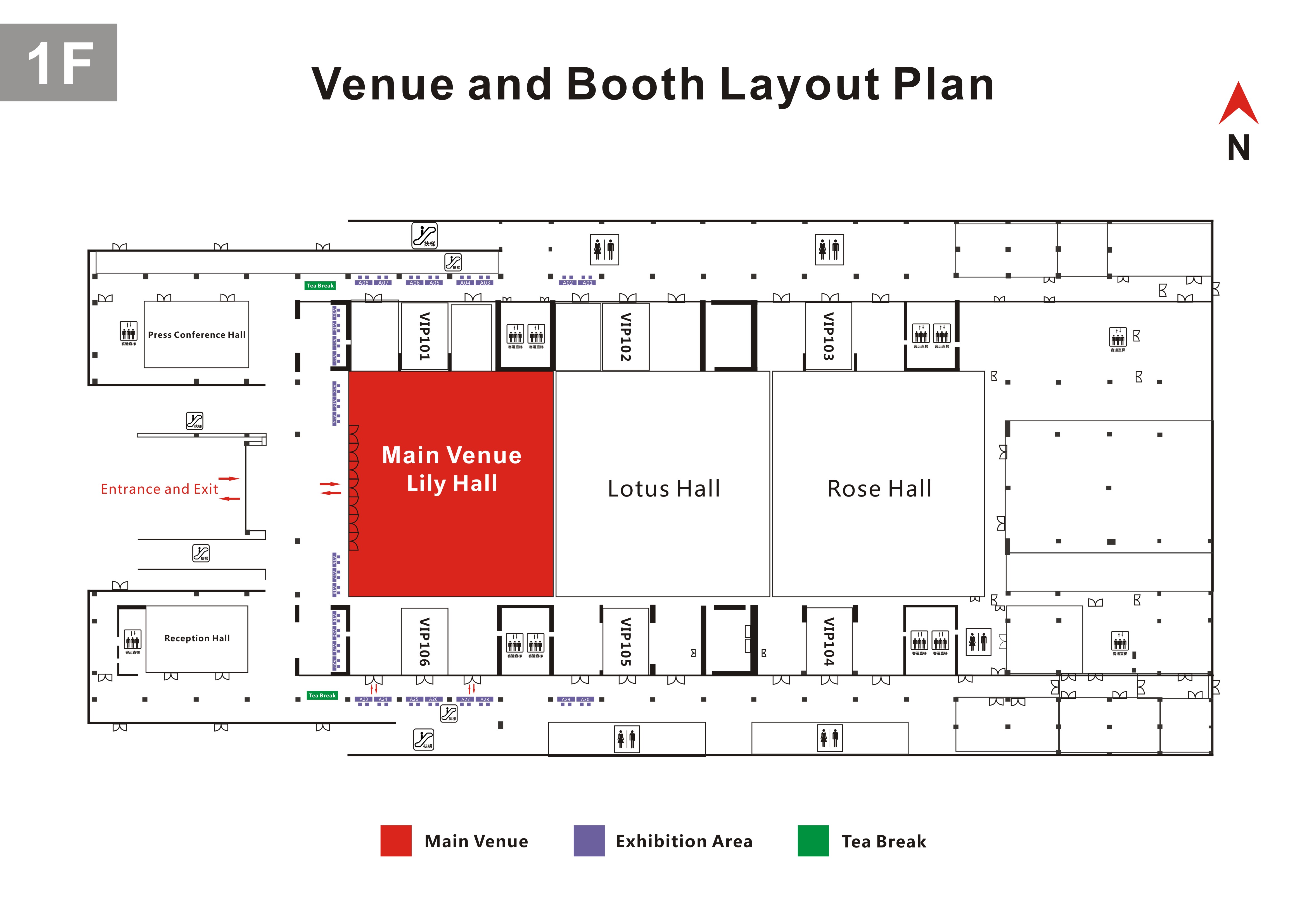
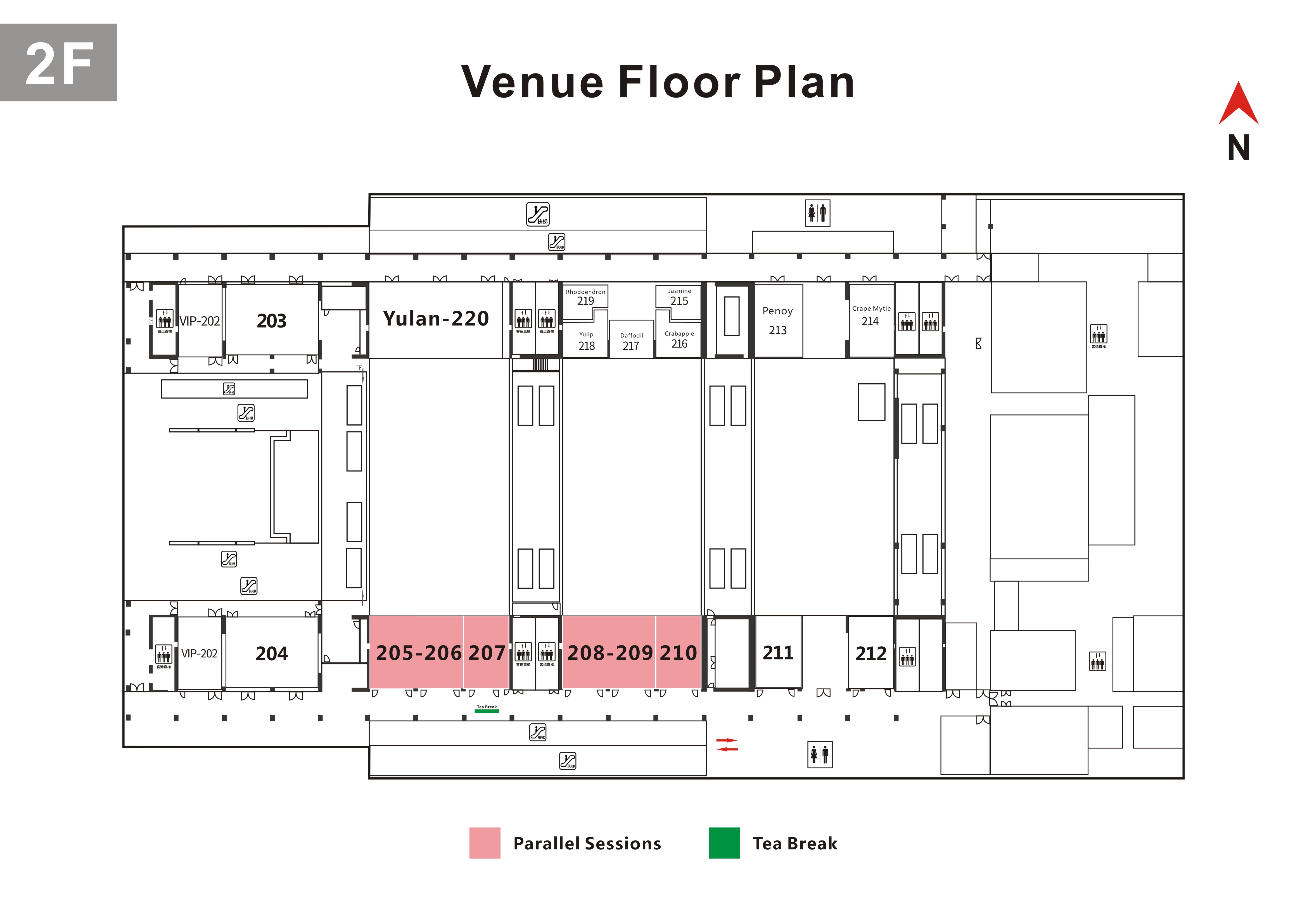
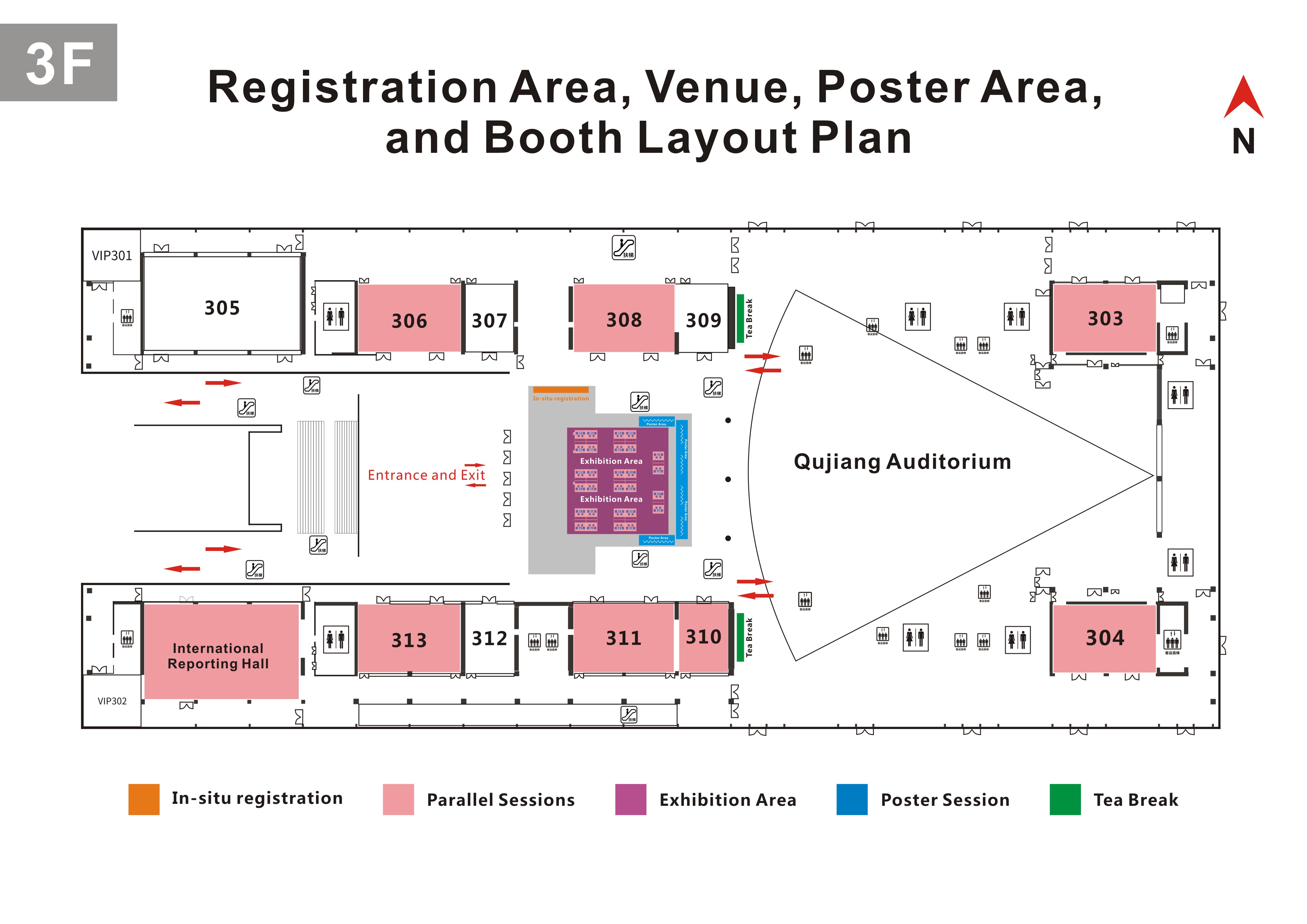
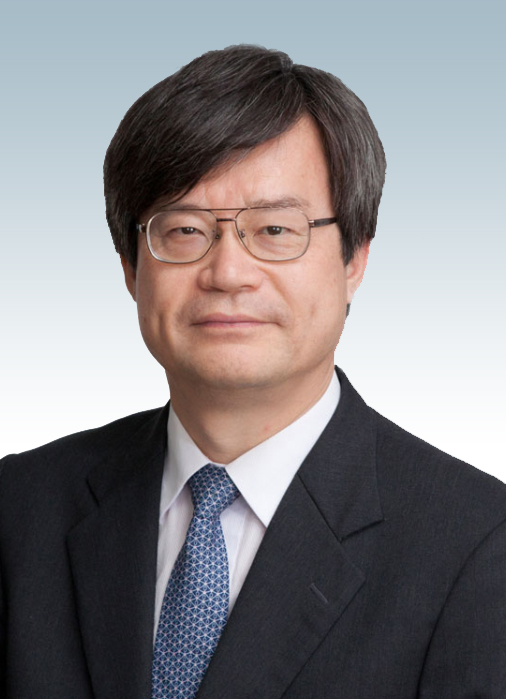
Prof. Hiroshi Amano, Professor at Nagoya University, Winner of Nobel Prize in Physics in 2014, Japan
Prof. Hiroshi Amano born on September 11, 1960, in Hamamatsu City, Shizuoka Prefecture, Japan, is an expert in electronic engineering. He is a member of the Japan Academy, Engineering Academy of Japan, Foreign Associate of the National Academy of Engineering (USA), Foreign Member of the Chinese Academy of Engineering, Professor at Nagoya University, and Director of the Center for Integrated Research of Future Electronics at the Institute of Materials and Systems for Sustainability, Nagoya University. Amano received his Bachelor's degree in Electronic Engineering from Nagoya University in 1983, a Master's degree in Electrical and Electronic Engineering in 1985, and a Doctorate in Electrical and Electronic Engineering in 1989. He served as Assistant Professor at Meijo University's School of Science and Engineering in 1992, Associate Professor in 1998, and became a full Professor in 2002. In 2010, he was Professor at Nagoya University's Graduate School of Engineering. Notable honors include being awarded the Nobel Prize in Physics in 2014, election to the Engineering Academy of Japan in 2015, Foreign Associate of the U.S. National Academy of Engineering in 2016, and Foreign Member of the Chinese Academy of Engineering in 2019.
Amano has long been dedicated to research on nitride semiconductor materials and devices, with particular focus on gallium nitride (GaN) material growth and device fabrication.
Topic of the lecture at ICCGE-21: Role of Crystal Growth and Epitaxy for Bright Applications of Wide-Band Gap GaN-Based and Ultra Wide-Bandgap AlGaN-Based Devices
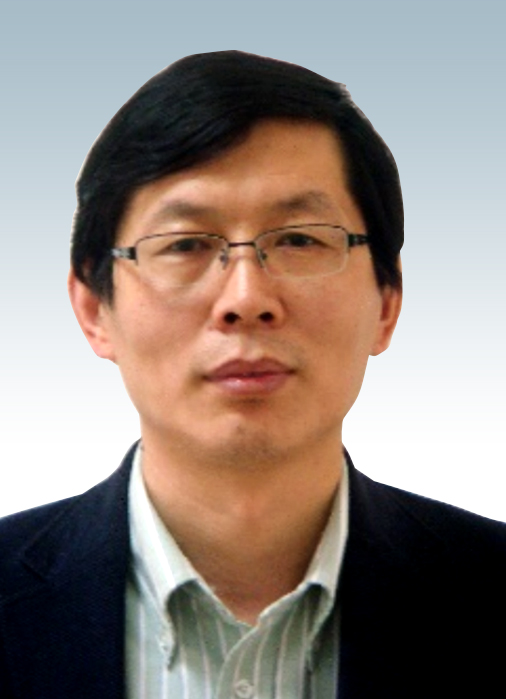
Prof. Xiaolong Chen, Professor of the Institute of Physics, Chinese Academy of Sciences, China
Prof. Xiaolong Chen got his Ph.D in Physics in 1991 and did his post-doc in Heidelberg University and Bayreuth University as a Humboldt fellow. Now he is a Professor of the Institute of Physics, Chinese Academy of Sciences. He served as the vice chairman of the Chinese Crystallographic Society (2004-2012) and the vice Chairman of ICDD(2014-2018). He was selected as a Distinguished Fellow the ICDD. Prof. Chen has been working on new materials exploration, crystal growth and properties characterizations for decades. He is one of leading researchers on growth of silicon carbide crystal by physical vapor transport and high temperature solution growth. He took the lead in industrializing silicon carbide crystals in China. He is a co-founder of Tankblue, one of major suppliers of SiC wafers in the world. He and his team have made significant breakthroughs in growing p-type and 3C-SiC by high temperature solution growth over recent years. His other important contributions to science include the discoveries of alkali metal-intercalated iron selenide high-temperature superconductors and the hydrates in the Change’5 returned lunar soils. He authored or co-authored 450+ international journal papers, 75 patents (7 international patents). He gave 100+ plenary, keynote and invited talks in international and domestic conferences.
Topic of the lecture at ICCGE-21: Recent progresses on growing SiC crystals by high-temperature solution method
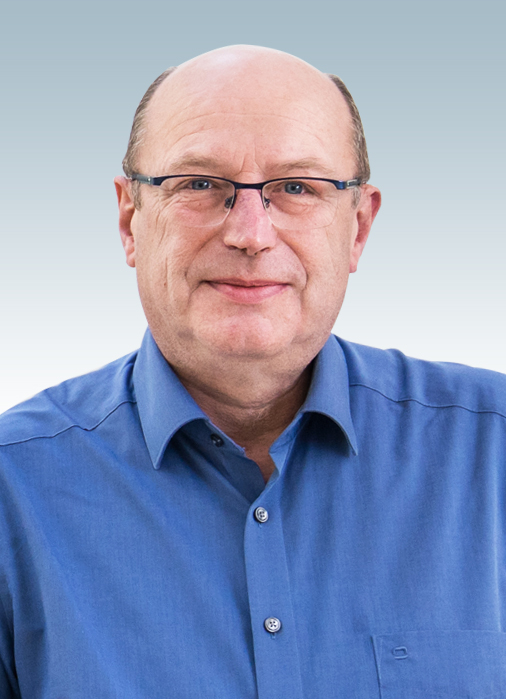
Dr. Jochen Friedrich, Fraunhofer Institute for Integrated Systems and Device Technology IISB, Germany
Dr.-Ing. Jochen Friedrich studied Materials Science at the Friedrich-Alexander University of Erlangen-Nuremberg (FAU), Germany. After receiving his Dr.-Ing. degree from the FAU in 1996 he joined the Fraunhofer Institute of Integrated Systems and Device Technology (IISB) in Erlangen. Since 2004 he is head of the Department Materials at IISB. He (co-)authored more than 170 publications in international journals, hold more than 30 patents and gave several invited presentations at international conferences. Together with his colleagues he received several scientific awards for his outstanding contributions in the field of crystal growth and epitaxy among the “Wissenschaftspreis des Stifterverbandes für die Deutsche Wissenschaft 2003”, Award of the „Gesellschaft für Mikroelektronik, Mikro- und Feinwerktechnik (GMM) des VDI/VDE“ 2005, Microelectronics Innovation Award 2009, and DGKK Award 2024. He was also president of the German Crystal Growth Association (DGKK) from 2012 to 2016.
The Department Materials under the guidance of Dr. Jochen Friedrich supports material, device and equipment manufacturers and their suppliers by delivering scientific-technological solutions in the field of production and characterization of crystals, epitaxial layers, and devices. Today the focus is put on WBG and UWBG semiconductors for power electronics, optoelectronics, rf electronics and quantum technologies.
Topic of the lecture at ICCGE-21: Crystal Growth, Epitaxy and Characterization of WBG and UWBG Semiconductors – Status, Challenges, Solutions
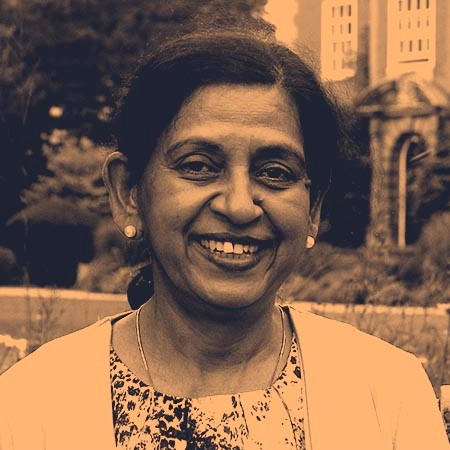
Prof. Geetha Balakrishnan, Professor at University of Warwick, UK
Geetha Balakrishnan is a Professor in the Physics Department at the University of Warwick. Her research interests are in the growth of single crystals of superconductors, magnetic, and topological materials by a variety of techniques, including a large programme of work using optical furnaces for the floating zone technique. She is also interested in low temperature laboratory measurements and neutron scattering studies.
Prof. Balakrishnan has led the successful single crystal growth programme at Warwick for many years and has trained a large of cohort of PhD students and Research Fellows from many international research groups.
Topic of the lecture at ICCGE-21: Advances in the crystal growth of quantum materials
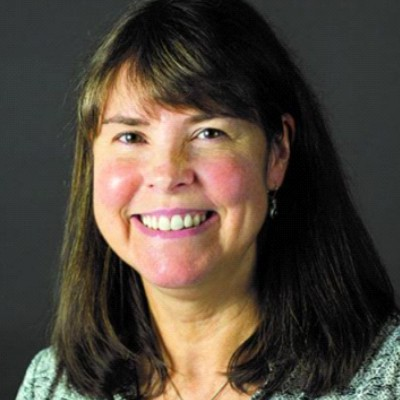
Joan M. Redwing, Penn State University, USA
Joan M. Redwing received her B.S. in Chemical Engineering from the University of Pittsburgh and her Ph.D. in Chemical Engineering from the University of Wisconsin-Madison. After receiving her Ph.D., she was employed as a research engineer at Advanced Technology Materials, Inc. where she worked on the development of group III-nitride materials and devices. Dr. Redwing joined the faculty of the Department of Materials Science and Engineering at Penn State University in 2000. She holds an adjunct appointment in the Department of Electrical Engineering and is a member of the Materials Research Institute. She currently serves as Director of the 2D Crystal Consortium (2DCC), an NSF-funded Materials Innovation Platform national user facility. Dr. Redwing's research interests are in the general area of electronic materials synthesis and characterization with a specific emphasis on semiconductor thin film, nanowire and 2D materials synthesis by metalorganic chemical vapor deposition. She currently serves as vice president of the American Association for Crystal Growth, is an associate editor for the Journal of Crystal Growth and is the North American regional editor for the journal 2D materials. She is a fellow of APS, MRS and AAAS and was a Fulbright Scholar to Sweden in 2016. She is a co-author on over 300 publications in refereed journals and holds 8 U.S. patents.
Topic of the lecture at ICCGE-21: Advances in MOCVD for Epitaxial Growth of Wafer-Scale 2D Transition Metal Dichalcogenide Monolayers
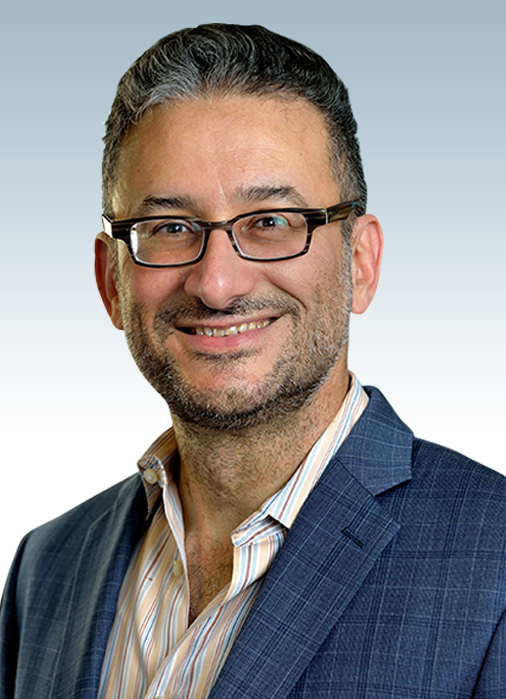
Prof. Talid Sinno, University of Pennsylvania, USA
Talid Sinno received his B.S. in Chemical Engineering and B.A. in Chemistry from the University of Pennsylvania. He received a Ph.D. (1998) in Chemical Engineering from M.I.T, where he subsequently spent another year as a postdoctoral researcher and lecturer. He has been a member of the faculty of the Department of Chemical and Biomolecular Engineering at the University of Pennsylvania since 1999 and is currently Professor of Chemical and Biomolecular Engineering. He holds a secondary appointment in the Department of Mechanical Engineering and Applied Mechanics at Penn. Talid also serves as the Founding Director of the Master’s Program in Scientific Computing (SCMP) at Penn, which provides students with training at the nexus of modern scientific computing and data science. Talid’s research in computational materials science is focused on multiscale modeling and simulation of nucleation, assembly, and crystallization processes in a wide range of material systems. Examples include semiconductor microstructure evolution during crystal growth and wafer processing, colloidal self-assembly, and platelet cell aggregation in blood flow. His group develops and applies numerous computational techniques across length and time scales to study these problems, including molecular dynamics, various flavors of Monte Carlo, and continuum modeling.
Topic of the lecture at ICCGE-21: Molecular simulations as computational experiments for understanding defect clustering phenomena in bulk crystalline semiconductors
Frank Prize
Jointly awarded to Prof. Jeffrey Derby (University of Minnesota, USA) and Prof. Koichi Kakimoto (Tohoku University, Japan) for:"Development and promotion of numerical modelling in the field of bulk crystal growth, introducing new mathematical tools, new physical and chemical models, and experimental validation methodology, for the benefit of research and industry."
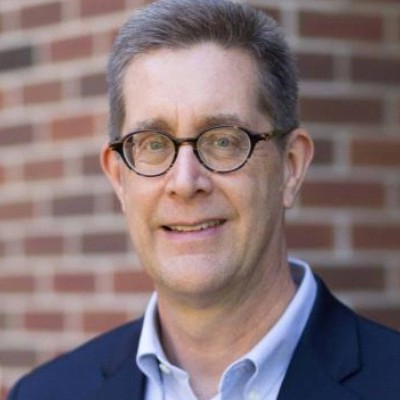
Topic of the lecture at ICCGE-21: "Seeing what is hidden by what we see" via crystal growth modeling
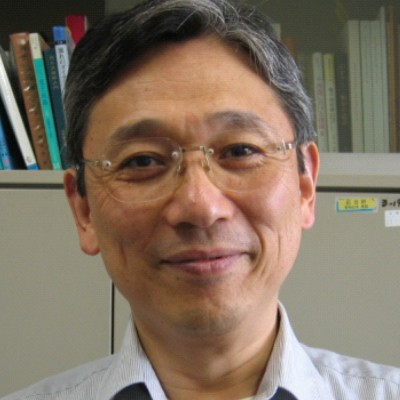
Topic of the lecture at ICCGE-21: Collaboration of numerical and experimental studies toward understanding and control of bulk crystal growth
Laudise Prize
Prof. Michael Heuken (Aixtron SE, Germany). For "Detailed understanding of the fundamentals of Metalorganic Chemical Vapor Deposition (MOCVD), consequently designing and optimizing epitaxial equipment and processes and managing their transfer to industry. "

Topic of the lecture at ICCGE-21: 40 years of innovation in MOCVD technology
Schieber Prize
Prof. Zakaria Al Balushi (University of California, USA). For "the development of novel synthesis and integration schemes, particularly the confinement epitaxy technique, for emerging low-dimensional materials for viable technologies."
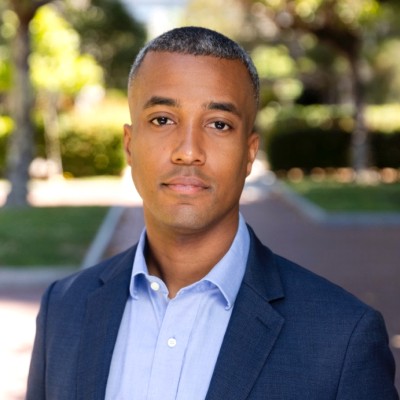
Topic of the lecture at ICCGE-21: Crystal Growth at Confined Heterointerfaces
August 3 (Sunday)
|
9:00-22:00
|
In-situ registration Central Hall (3rd Floor) |
|
19:00-22:00
|
Reception, Lily Hall (1st Floor) |
| Room | Monday August 4 | Tuesday August 5 | Wednesday August 6 | Thursday August 7 | Friday August 8 |
|---|---|---|---|---|---|
| Lily Hall | 9:00-12:30 Opening, Keynote | 9:00-10:30 Keynote | |||
| International Reporting Hall (Third Floor) | 11:00-12:30 Session A | 9:00-12:30 Session A | 9:00-10:30 Keynote | 9:00-10:30 Keynote | |
| 11:00-12:30 Session A | 11:00-12:30 Keynote and Closing | ||||
| 14:00-17:10 Session A | 14:00-17:20 Session A | 13:00-14:00 General Assembly | |||
| 14:00-15:50 Session A | |||||
| Room 313 | 11:00-12:30 Session B | 9:00-12:10 Session B | 11:00-12:10 Session B | ||
| 14:00-17:30 Session B | 14:00-17:30 Session B | 14:00-15:15 Session B | |||
| Room 210 | 11:00-12:40 Session C | ||||
| 14:00-17:15 Session C | 14:00-17:15 Session C | ||||
| Room 311 | 11:00-12:30 Session D | 9:00-11:45 Session D | |||
| 14:00-17:30 Session D | 14:00-16:45 Session D | ||||
| Room 306 | 11:00-12:30 Session E | 9:00-12:00 Session E | 11:00-12:45 Session J | ||
| 14:00-17:30 Session E | 14:00-17:15 Session E | 14:00-17:30 Session J | |||
| Room 308 | 11:00-12:30 Session F | 9:00-12:00 Session M | 11:00-12:30 Session L | ||
| 14:00-17:08 Session F | 14:00-17:01 Session F | 14:00-17:30 Session L | |||
| Room 303 | 11:00-11:59 Session G | 9:00-12:30 Session G | 11:00-12:16 Session G | ||
| 14:00-17:41 Session G | 14:00-17:41 Session G | ||||
| Room 304 | 11:00-12:30 Session N | 9:00-12:30 Session H | 11:00-12:30 Session H | ||
| 14:00-17:30 Session N | 14:00-17:30 Session H | 14:00-15:45 Session H | |||
| Room 205+206 | 11:00-12:30 Session I | 9:00-12:00 Session I | |||
| 14:15-17:30 Session I | 14:15-17:30 Session I | ||||
| Room 208+209 | 11:00-12:30 Session K | 9:00-12:30 Session K | 11:00-12:30 Session K | ||
| 14:00-17:30 Session K | 14:00-17:30 Session K | 14:00-15:00 Session K | |||
| Room 207 | 11:00-12:21 Session Q | 9:00-12:30 Session P | 11:00-12:30 Session P | ||
| 14:00-17:36 Session Q | 14:00-17:43 Session Q | 14:00-14:45 Session P | |||
| Room 312 | 11:00-12:30 Session O | ||||
| 14:00-16:45 Session O |
The conference will include 17 sessions. For each session, at maximum 13 invited presentations and 46 oral presentations can be accepted, together with an unlimited number of posters. Part of invited presentations will be selected from submitted oral presentations, and finally confirmed by the authors.
(A) Fundamentals of Nucleation and Crystal Growth
This session focuses on nucleation, phase selection, thermodynamics and kinetics, interfacial growth processes, growth morphology, solute participation, segregation, precipitation, physical field effects, and other fundamental principles in crystal growth process. Experimental, theoretical and computational results are all included.
Session chairs:
- Prof. Haohai Yu, Shandong University, China
- Prof. Yuki Kimura, Hokkaido University, Japan
(B) Bulk Crystal Growth
This session focuses on the principles and technologies of bulk crystal growth from melt, solution and vapor phase, defects formation and characterization, and also machining and device applications of bulk crystalline materials.
Session chairs:
- Prof. Liangbi Su, Shanghai Institute of Ceramics, Chinese Academy of Science, Shanghai, China
- Prof. Kozo Fujiwara, Tohoku University, Japan
(C)Advances in Modelling Crystal Growth Processes Including AI
This session focuses on the advancing numerical methods, software development and their applications to crystal growth process, as well as the development the application of artificial intelligence technology for design and optimization of crystal growth process, new crystalline materials etc.
Session chairs:
- Prof. Lili Zheng, Tsinghua University, Beijing, China
- Prof. Lijun Liu, Xi’an Jiaotong University, Xi’an, China
- Dr. Natascha Dropka, Sektionsleiterin Fundamentale Beschreibung Gruppenleiterin, Germany
- Prof. Stanialaw Krukowski, Poland
(D)Thin Films and Epitaxial Growth
This session focus on the advances in thin film crystalline materials and epitaxial growth technologies, such as MBE, MOCVD, PVT, CVT, etc. for thin film sensors, superlattices, and other film structures and devices.
Session chairs:
- Prof. Jincheng Zhang, Xidian University, Xi’an, China
- Prof. Xinqiang Wang, Peking University, Beijing, China
- Prof. Motoaki Iwaya, Meijo University, Japan
(E)2D Materials and Technologies
This session focus on the advances in 2D materials, preparation technologies, crystal structure and physical property characterizations, and also applications in the field of electronics, optoelectronics, sensing, and energy storage, especially graphene, InSe, BN, MX2 , MXene, etc.
Session chairs:
- Prof. Bo Song, Harbin Institute of Technology, Harbin, China
- Prof. Cecilia Mattevi, Imperial College London, UK
(F)Growth at the Nanoscale: Nanocrystals, Nanowires, Nanomaterials
This session focuses on crystal growth at the nanoscale, including nanocrystals, nanowires, nanotubes, and other nanostructures. Contributed presentations can be about advances in new nanomaterials, preparation technologies, characterization of structures and physical properties, and nanodevices and their applications. This session ensures a comprehensive exploration of both the fundamental science and the cutting-edge applications of nanoscale crystal growth.
Session chairs:
- Prof. Guowen Meng, Institute of Solid State Physics, CAS, Hefei, China
- Prof. Dr. Nico Lovergine, University of Salento, Lecce, Italy
(G)Characterization of Crystal Structure, Defects,Impurities and Physical Properties
This session accepts the presentations about advances in the characterization of crystals, including crystalline structure, defects, impurities, and also physical properties based on well-established and new principles /methods.
Session chairs:
- Prof. Xiaolong Chen, Institute of Physics, CAS, Beijing, China
- Prof. Chengtian Lin, Max Planck Institute for Soild State Research, 70569 Stuttgart, Germany
(H)Semiconductors
This session focus on crystal growth of all kinds of semiconductors including but not limited to Si, Ge, III-V compounds, II-VI compounds, wide band-gap semiconductors such as SiC, GaN, AlN, Ga2O3, diamond etc., as well as their epitaxial growth, doping, processing technologies, characterization and their applications in devices.
Session chairs:
- Prof. Ke Xu, Suzhou Institute of Nano-Tech and Nano-bionics, Suzhou, China
- Prof. Hideto Miyake, Mie University, Japan
- Dr. Henry Chen,Company Brimrose,USA
(I)Optical and Laser Crystals
This session accepts presentations on advances in optical crystals, nonlinear crystals, crystal for laser emission, and other opto-electronic crystal, and also the related growth methods, processing, characterization and device applications.
Session chairs:
- Prof. Ning Ye, Tianjin University of Technology, Tianjin, China
- Prof. Matias Velázquez, CNRS, France
(J)Crystals of Piezoelectric, Dielectric, Ferroelectric Materials
This session accepts presentations on the crystalline synthesizing, growth, characterization, processing and device applications of piezoelectric, dielectric, ferroelectric and other related crystalline materials.
Session chairs:
- Prof. Ningzhong Bao, Zhejiang University, Hangzhou, China
- Prof. Fei Li, Xi’an Jiaotong University, Xi’an, China
- Prof. Geetha Balakrishnan, University of Warwick, UK
- Prof. Rojac Tadej, Jožef Stefan Institute, Ljubljana, Slovenia
(K)Detector Materials
This session focus on crystalline materials for wide region detectors, such as scintillation crystal and semiconductor for X-/-ray, / particles, neutrons, and also for ultraviolet, infrared, terahertz, and other radiations. The presentations can be about new materials, growth technologies, crystal processing, and device applications.
Session chairs:
- Prof. Dong Wang, Shanghai Institute of Ceramics, Chinese Academy of Science, Shanghai, China
- Prof. Zhiguo Xia, South China University of Technology, Guangzhou, China
- Prof. Andrea Zappettini, IMEM-CNR, Istituto Materiali per l’Elettronica e il Magnetismo Consiglio Nazionale delle Ricerche, Parma, Italy
(L)Industrial Crystallization
This session accepts presentations on the thermodynamic and kinetic principles, process controlling of crystallization in solutions in industrial scale, widely used in chemical industrial, medical and drug production.
Session chairs:
- Prof. Hongxun Hao, Tianjin University, Tianjin, China
- Prof. DachuanYin, Northwestern Polytechnical University, Xi’an, China
- Prof. Jerry Heng, Department of Chemical Engineering, Imperial College London, UK
- Prof. Alison Lewis, University of Cape Town, South Africa
(M)Crystallization of Organic and Biological Materials
The session accepts contributions on nucleation, growth, processing technologies, characterization and applications of organic, inorganic and composite biomaterials for applications, with particular attention on the followings: 1) Crystallization principles, phase separation and application of organic crystals, biomolecules, and polymers; 2) Flexible crystal engineering of organic and biomolecules for smart applications; 3) Nanocrystals for Bioimaging and Biosensors; 4) Nanostructures for drug delivery and disease diagnosis; 6) Nanocomposite biomaterials for tissue engineering; 7) Low dimensional materials for organic electronics and bioelectronics; 8) Nanoimmunoengineering; 9) Biomimetic materials for regenerative medicine; 10) Biomaterials for sustainability; 10) Unraveling and mimicking Nature’s strategies and mechanisms in biomineralization.
Session chairs:
- Prof. Hong Liu, Shandong University, Jinan, China
- Prof. Huanli Dong, Institute of Chemistry, CAS, Beijing, China
- Prof. Linda Pastero, Università degli Studi di Torino, Italy
- Prof. Panče Naumov, New York University, USA
(N)Crystals for Photovoltaics and New Energy Applications
This session focus on the crystals for photovoltaic, fuel cell, Hydrogen and other new energy applications. Presentation can be about the new material designing, synthesis, and crystal growth, characterization and device applications.
Session chairs:
- Prof. Xuegong Yu, Zhejiang University, Hangzhou, China
- Prof. Chung-wen Lan, National Taiwan University, Taibei
(O)Thermoelectric Materials: Design, Synthesis, Growth and Properties
This session focus on crystalline or polycrystalline thermoelectric, including new materials design, polycrystalline synthesis and single crystal growth, micro to nanostructure design and control, transport property measurement and application.
Session chairs:
- Prof. Lidong Zhao, Beihang University, Beijing
- Prof. In Chung, Seoul National University, Korea
(P)New Methods and Techniques for Crystal Growth
The focus of this session is on the promising perspectives of new crystal growth methods including the recent progress in industrially relevant techniques. New techniques could revolutionize industries to improve productivity or to solve problems emerging from new challenges. While welcoming presentations on in-situ observation and advances of applied physical fields in crystal growth processes, papers are also accepted on process optimization strategies with specific properties, new computational models for better predictions, rational design of material with desired properties, development of materials with new functionality, modern concepts to control kinetics and crystallization efficiently, methodologies for rapid advancements in crystal quality, post processing, scalability, well-known growth methods with significant refinements, etc.
Session chairs:
- Prof. Rukang Li, Technical Institute of Physics and Chemistry, CAS, Beijing, China
- Dr. habil. Radhakrishnan Sumathi, Stellvertretende Abteilungsleiterin Volumenkristalle Volumenkristalle/Halbleiter, Berlin, Germany
(Q)Emerging Crystalline Materials
The conference designs this session for open interdisciplinary discussion on new emerging crystalline materials, new crystalline structures and openings for designing new concept crystalline materials, without limitation, to promote the discovery of new crystal materials and application fields.
Session chairs:
- Prof. Shilie Pan, Xinjiang Technical Institute of Physics and Chemistry, CAS, Urumqi, China
- Dr. Satya Kushwaha, The associate director of PARADIM - Bulk Crystal Facility, The Johns Hopkins University,USA